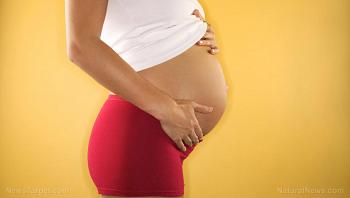Fertility warning: 34 cases of spontaneous miscarriage and stillbirth reported after experimental mRNA vaccines
In the rush to vaccinate every man, woman and child against a year-old coronavirus strain, sacrifices are being made. The Vaccine Adverse Event Reporting System (VAERS) is now reporting thirty-four cases of miscarriage and stillbirth associated with the experimental COVID-19 vaccinations. The initial guidelines warn pregnant women not to partake in these real-world vaccine trials, but the experiment is taking place regardless, as healthcare workers are pressured to take the shots, pregnant or not.
VAERS is a passive vaccine injury surveillance system run by the Centers for Disease Control and Prevention (CDC) and Food and Drug Administration (FDA). Many vaccine injuries are not recorded because healthcare officials do not want to be held accountable for administering something that did harm to a healthy patient. Because vaccine injury reporting is often discouraged, VAERS only captures less than one percent of all adverse events observed after vaccination. This means that there could already be 3,400 or more cases of miscarriage or stillbirth. A silent epidemic of infertility could be upon us.
Previously healthy healthcare workers suffer miscarriage, stillbirth after experimental vaccine
Most of the miscarriages occurred in the first trimester, when prenatal development is most tedious. Twenty-five of the miscarriages occurred within two weeks after the Pfizer-BioNTech vaccine was administered, with some miscarriage symptoms beginning within 48 hours after the shot was administered. Even more shocking, there were four stillborn babies after vaccination, all occurring in the second and third trimester.
One of the cases involves a 31-year-old physician from Tennessee. At five weeks pregnant, she suffered a miscarriage thirteen days after taking Pfizer’s mRNA shot. A 33-year-old nurse from Indiana suffered a miscarriage just five days after receiving a second dose of the Pfizer shot. She had no previous allergies to vaccines. A 32-year-old Virginia woman suffered a miscarriage just five days after receiving the Moderna shot. Prior to receiving the vaccine, she was checked over and cleared as healthy by two OBGYNs. The adverse event began just two days after the shot, starting with abdominal cramping, vaginal bleeding and then she suffered a miscarriage.
A 35-year-old Michigan woman monitored her baby’s movements after she was vaccinated with Pfizer’s experimental mRNA. She got the vaccine at 28 weeks and five days pregnant, and only two days later, she noticed her baby’s movements had slowed inside of her. Soon after, she gave birth at 29 weeks to a stillborn baby who weighed two pounds and seven ounces.
These serious issues have not stopped Pfizer from authorizing a new trial on 4,000 pregnant women who will be administered the experimental shots in the second and third trimester. After initially advising against vaccination of pregnant women, the World Health Organization is now giving doctors the green light to do so. The regulatory agencies concur that any pregnant woman is at greater risk of complications from a COVID-19 infection, as if their pregnancy is some kind of underlying condition, as if proper prenatal nutrition is not good enough.





